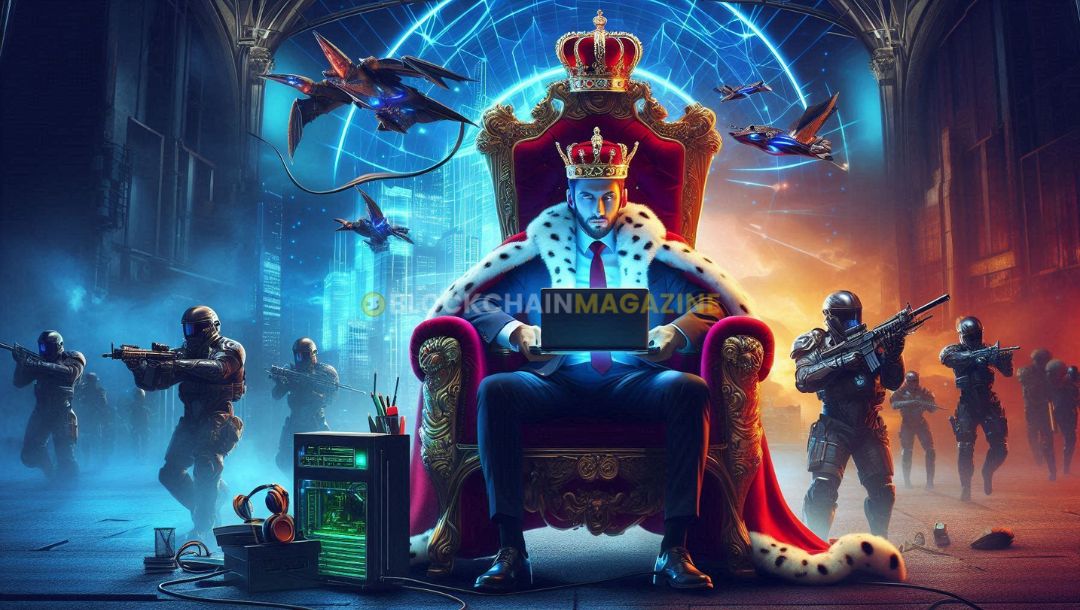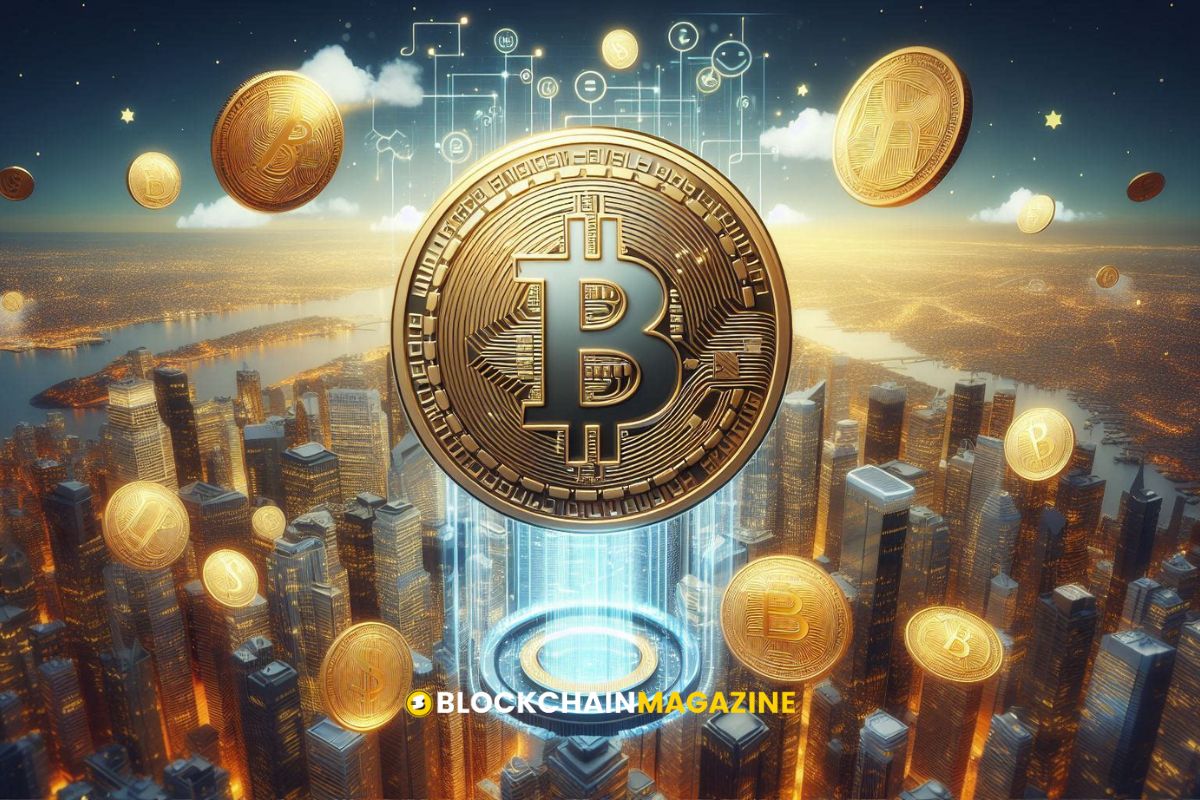The Future of Metaverse Gaming: What to Expect in the coming years
The metaverse is set to revolutionize the gaming industry by creating immersive, interconnected virtual worlds. As more people engage with digital platforms, the line between reality and virtual experiences continues to blur. This new era of gaming promises not only enhanced entertainment but also new economic opportunities and social interactions. Let’s explore what the future holds for metaverse gaming.
Key Takeaways
- Metaverse gaming will enable seamless transitions for avatars and assets across different games, enhancing player experiences.
- Blockchain technology and cryptocurrency will play a significant role in creating and managing in-game economies.
- Advancements in VR, AR, and haptic feedback will make gaming experiences more immersive than ever before.
- Players will engage in more social and collaborative activities, from virtual meetups to community-driven content creation.
- Educational and training applications of metaverse gaming will offer innovative ways to learn and develop new skills.
Cross-Game Interoperability in Metaverse Gaming
In the metaverse, the lines between individual games blur, allowing for a more interconnected gaming experience. Players can use assets or characters from one game in another, creating unique crossover opportunities and expanding gameplay possibilities.
Seamless Avatar Transitions
One of the most exciting aspects of cross-game interoperability is the ability to move avatars between different games. This means that a character you develop in one game can be used in another, maintaining its appearance and abilities. This seamless transition enhances the player’s sense of continuity and investment in their digital identity.
Unified Virtual Economies
Interoperability also extends to virtual economies. Players can trade items and currency across different games, creating a unified economic system. This not only makes in-game assets more valuable but also encourages players to engage with multiple games within the metaverse.
Shared Game Mechanics
Another benefit is the sharing of game mechanics between different titles. For example, a combat system or crafting mechanic from one game could be used in another, providing a familiar experience for players. This shared approach can make it easier for players to pick up new games and enjoy them without a steep learning curve.
The future of metaverse gaming promises a world where the boundaries between games are fluid, offering endless possibilities for players to explore and enjoy.
Economic Ecosystems and Monetization
Blockchain and Cryptocurrency Integration
Blockchain technology is changing the gaming world by giving players true ownership of their in-game assets. Players can trade, sell, or transfer their digital items across different platforms using NFTs. This creates a seamless experience and opens up new ways to make money. Web3 technology, powered by blockchain, makes in-game transactions transparent and secure. This means players have more control over their gaming experiences.
In-Game Real Estate Markets
In the metaverse, players can buy, sell, and trade virtual real estate. These digital properties can be used for various purposes, such as hosting events or creating businesses. The value of virtual land can increase over time, making it a profitable investment. Some games even allow players to rent out their properties to others, creating a steady income stream.
Player-Driven Economies
Player-driven economies are becoming more common in metaverse games. In these economies, players can earn money by creating and selling in-game items, completing tasks, or providing services to other players. This model democratizes gaming by giving everyone a chance to earn money, especially in regions where traditional financial systems are limited. The metaverse could also provide opportunities for esports teams and organizations to monetize their content.
Technological Advancements Driving Immersion
Virtual Reality and Augmented Reality
Virtual Reality (VR) and Augmented Reality (AR) are at the forefront of creating immersive experiences in the metaverse. These technologies allow users to step into lifelike virtual worlds or enhance their real-world surroundings with digital overlays. As VR and AR continue to evolve, they will offer more realistic and interactive environments, making the metaverse more engaging for its diverse audience.
Haptic Feedback Systems
Haptic feedback systems add a tactile dimension to virtual experiences. By simulating touch, pressure, and texture, these systems make interactions in the metaverse feel more real. Imagine being able to feel the texture of a virtual object or the impact of a virtual collision. This technology will significantly enhance the sense of presence and immersion in virtual environments.
Artificial Intelligence in Gaming
Artificial Intelligence (AI) is set to revolutionize metaverse gaming. AI can create more intelligent and responsive non-player characters (NPCs), making games more challenging and enjoyable. Additionally, AI can personalize gaming experiences by adapting to individual player preferences and behaviors. This will lead to more dynamic and engaging gameplay, further blurring the lines between the virtual and real worlds.
Social and Collaborative Dynamics
Virtual Social Hubs
In the metaverse, virtual social hubs will become the new town squares. These spaces will allow people to meet, chat, and share experiences in real-time. Imagine walking into a virtual coffee shop and striking up a conversation with someone from another part of the world. These hubs will make it easier to form connections and build communities.
Collaborative Gameplay
Collaborative gameplay will be a cornerstone of metaverse gaming. The metaverse encourages collaboration and teamwork, with many games requiring players to work together to achieve common goals. This will not only make games more engaging but also help players develop teamwork skills.
Community-Driven Content Creation
Community-driven content creation will thrive in the metaverse. Players will have the tools to create their own worlds, characters, and stories. This will lead to a rich and diverse gaming environment where creativity knows no bounds. Players will be able to share their creations with others, making the metaverse a constantly evolving space.
The metaverse will transform how we interact, collaborate, and create, making virtual worlds as dynamic and engaging as the real one.
Educational and Training Applications
Virtual Classrooms and Workshops
The metaverse is changing how we learn. Virtual classrooms let students from all over the world join the same class. Teachers can use 3D models and interactive tools to make lessons more fun. Workshops in the metaverse can teach skills like coding or art in a hands-on way.
Skill Development through Gaming
Games in the metaverse can help people learn new skills. For example, a game might teach you how to code or how to manage money. These games make learning feel like play, which can help you learn faster than traditional methods. Experts believe that the metaverse can enhance the speed of the teaching–learning process.
Professional Training Simulations
Companies can use the metaverse for training. Workers can practice their jobs in a virtual world before doing them in real life. This is especially useful for jobs that are dangerous or hard to practice in real life. For example, pilots can use flight simulators to practice flying planes.
User-Generated Content and Customization
Player-Created Worlds
In the metaverse, players can build their own worlds. This means they can design landscapes, create buildings, and set up entire ecosystems. These worlds can be shared with others, allowing for a collaborative and ever-evolving environment.
Customizable Avatars and Assets
Players can customize their avatars to reflect their personal style. This includes changing clothes, accessories, and even physical features. Additionally, in-game assets like vehicles and tools can be modified to suit individual preferences.
Modding and Game Extensions
Modding allows players to alter game mechanics or add new features. This can range from simple changes, like new skins, to complex game extensions that introduce new gameplay elements. Modding communities often share their creations, enhancing the overall gaming experience for everyone.
Challenges and Ethical Considerations
As the metaverse continues to grow, it brings along several challenges and ethical concerns that need to be addressed to ensure a safe and inclusive environment for all users.
Conclusion
The future of metaverse gaming is incredibly promising and full of potential. As technology continues to advance, the lines between the virtual and real worlds will blur even more. Players will enjoy more immersive experiences, seamless transitions between different game worlds, and new ways to earn real-world income through gaming. The metaverse will not only change how we play games but also how we interact, socialize, and even work. While there are challenges to overcome, the possibilities are endless. The metaverse is set to redefine the gaming industry and create a new era of digital interaction and entertainment.
Frequently Asked Questions
What is metaverse gaming?
Metaverse gaming is a new type of gaming experience where players interact in a shared virtual world. This world combines elements of augmented reality (AR), virtual reality (VR), and blockchain technology to create immersive, interconnected digital spaces.
How does cross-game interoperability work in the metaverse?
In the metaverse, cross-game interoperability allows players to use the same avatar, items, or assets across different games. This means you can start in one game and continue your adventure in another without losing your progress or changing your character.
What role does blockchain play in metaverse gaming?
Blockchain technology is used in metaverse gaming to create secure, transparent, and decentralized virtual economies. It enables players to own and trade in-game assets, earn cryptocurrency, and ensure the authenticity and rarity of digital items through NFTs (Non-Fungible Tokens).
How can players make money in the metaverse?
Players can earn money in the metaverse by participating in various activities such as selling virtual items, offering services, trading real estate, and even creating and selling their own content. Some games also reward players with cryptocurrency for completing tasks or winning competitions.
What technologies are driving the immersive experiences in metaverse gaming?
Technologies like virtual reality (VR), augmented reality (AR), haptic feedback systems, and artificial intelligence (AI) are key to creating immersive experiences in metaverse gaming. These technologies allow players to feel more connected to the virtual world and interact with it in more realistic ways.
Are there any challenges or concerns with metaverse gaming?
Yes, there are several challenges and concerns, including digital privacy and security, economic inequality within virtual worlds, and potential mental health and addiction issues. It’s important for developers and players to address these issues to create a safe and inclusive metaverse environment.
Stay informed with daily updates from Blockchain Magazine on Google News. Click here to follow us and mark as favorite: [Blockchain Magazine on Google News].
Get Blockchain Insights In Inbox
Stay ahead of the curve with expert analysis and market updates.
latest from tech
Disclaimer: Any post shared by a third-party agency are sponsored and Blockchain Magazine has no views on any such posts. The views and opinions expressed in this post are those of the clients and do not necessarily reflect the official policy or position of Blockchain Magazine. The information provided in this post is for informational purposes only and should not be considered as financial, investment, or professional advice. Blockchain Magazine does not endorse or promote any specific products, services, or companies mentioned in this posts. Readers are encouraged to conduct their own research and consult with a qualified professional before making any financial decisions. The featured image used is just a creative depiction of the title and it does not intend to hurt sentiments of any person or institution. If it hurts anyone sentiments, please do not hesitate to reach out to Blockchain Magazine.

 Bitcoin
Bitcoin  Ethereum
Ethereum  XRP
XRP  Tether
Tether  Solana
Solana  USDC
USDC  Dogecoin
Dogecoin  Cardano
Cardano  Lido Staked Ether
Lido Staked Ether  TRON
TRON  Wrapped Bitcoin
Wrapped Bitcoin  Wrapped stETH
Wrapped stETH  Chainlink
Chainlink  Avalanche
Avalanche  Sui
Sui  Stellar
Stellar  Litecoin
Litecoin  Toncoin
Toncoin  Shiba Inu
Shiba Inu  Hedera
Hedera  LEO Token
LEO Token  USDS
USDS  Hyperliquid
Hyperliquid  Polkadot
Polkadot  WETH
WETH  MANTRA
MANTRA  Bitcoin Cash
Bitcoin Cash  Bitget Token
Bitget Token  Ethena USDe
Ethena USDe  Wrapped eETH
Wrapped eETH  Uniswap
Uniswap  Monero
Monero  NEAR Protocol
NEAR Protocol  Pepe
Pepe  WhiteBIT Coin
WhiteBIT Coin  Ondo
Ondo  Aave
Aave  Bittensor
Bittensor  Aptos
Aptos  Internet Computer
Internet Computer  Dai
Dai  Official Trump
Official Trump  Mantle
Mantle  Ethereum Classic
Ethereum Classic  OKB
OKB  Tokenize Xchange
Tokenize Xchange  Gate
Gate  sUSDS
sUSDS  Sonic (prev. FTM)
Sonic (prev. FTM) 




